Early signs show the spread of coronavirus could be slowing down in the UK, one of the top scientists advising the government has said.
As Britons were warned that restrictions could stay in place for six months, Professor Neil Ferguson, an epidemiologist at Imperial College London, said he believe the “epidemic is just about slowing in the UK right now” as a result of lockdown measures.
Prof Ferguson told BBC Radio 4’s Today programme: “In the UK we can see some early signs in slowing in some indicators, less so in deaths because deaths are lagged by a long time from when measures come in force.
Download the new Independent Premium app
Sharing the full story, not just the headlines
“But if we look at the numbers of new hospital admissions per day for instance, that does appear to be slowing down a little bit now.
“It’s not yet plateaued so still the numbers can be increasing each day but the rate of that increase has slowed.”
Prof Ferguson said the epidemic was spreading at different rates in different parts of the country, with up to 5 per cent of the population in London likely to have been infected.
“It is quite clear across the country, the epidemic is in different stages in different parts of the country,” he said.
“In central London it could be as many as 3 per cent to 5 per cent of the population has been infected – maybe more in individual hot spots. In the country as a whole in the UK, maybe 2 per cent or 3 per cent.”
He said antibody tests to determine if people have had the virus, which are currently in final stages of validation, would “hopefully” be available in days.
It comes after Dr Jenny Harries, England’s deputy chief medical officer, warned that restrictions would be in place for six months but the nation will not be in “complete lockdown”, with social distancing measures lifted gradually.
The latest news on Brexit, politics and beyond direct to your inbox
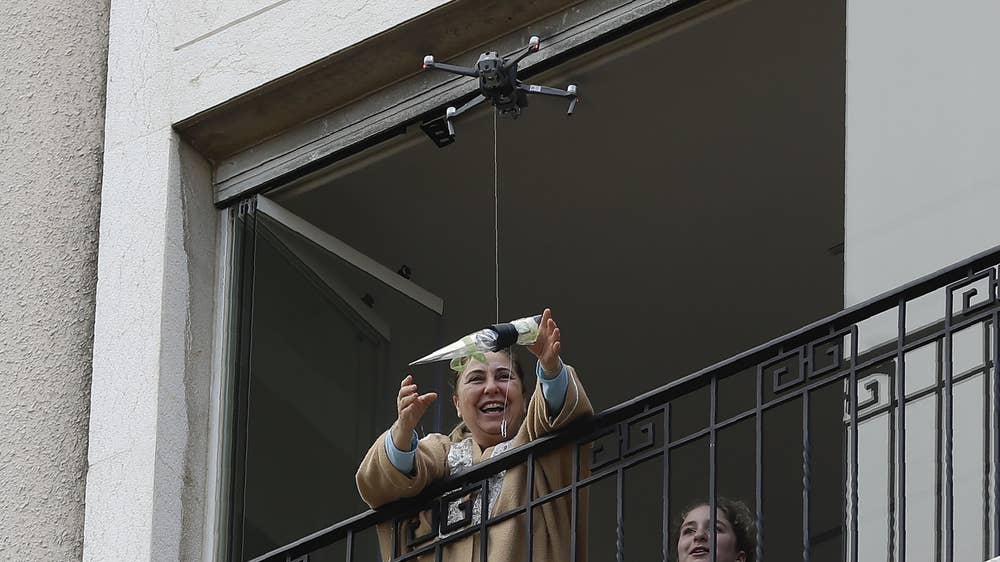
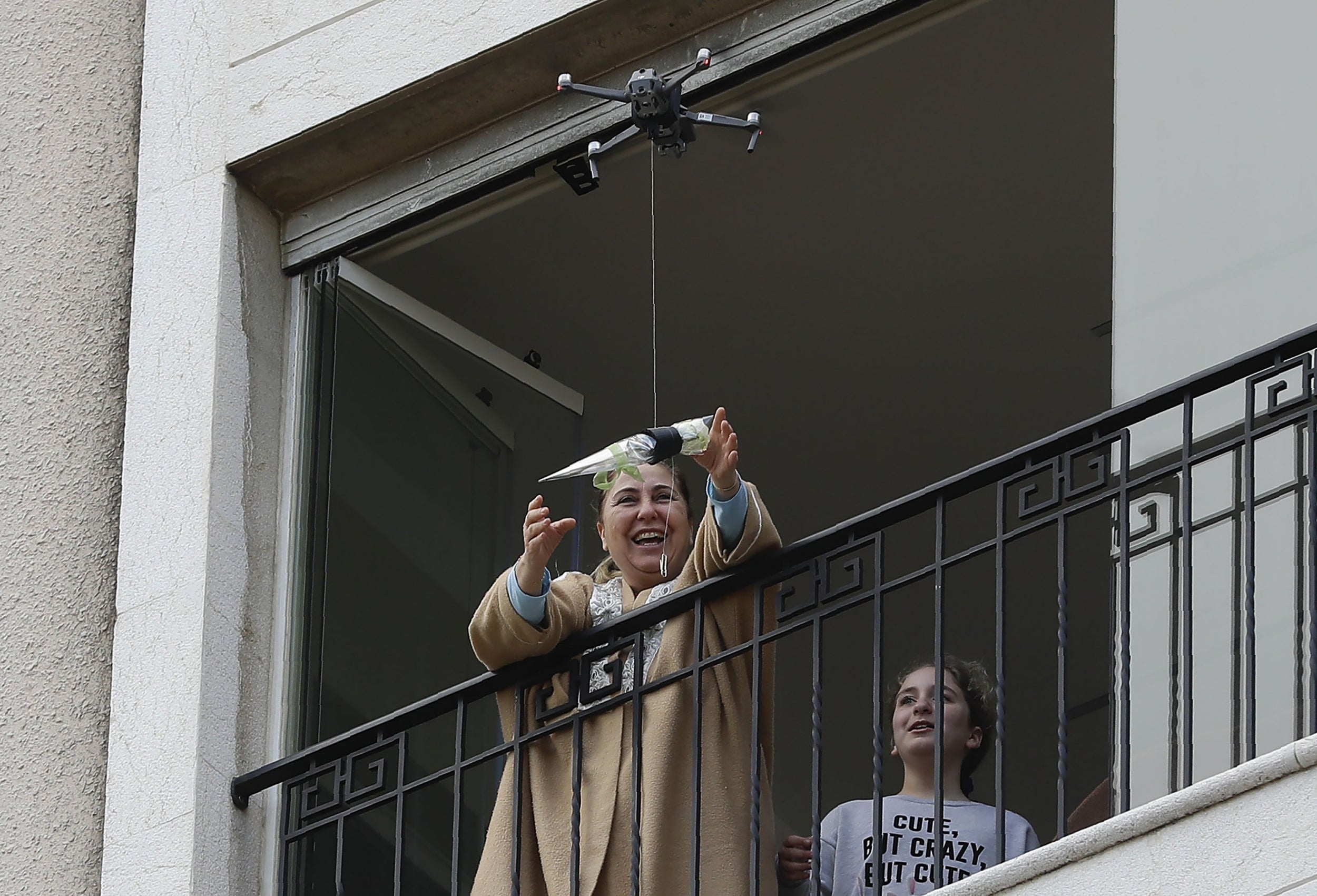
1/15
A rose is delivered by drone to a woman on Mother’s Day in Jounieh, Lebanon
AFP/Getty

2/15
Women dance on their balcony as a radio station plays music for a flash mob to raise spirits in Rome
Reuters
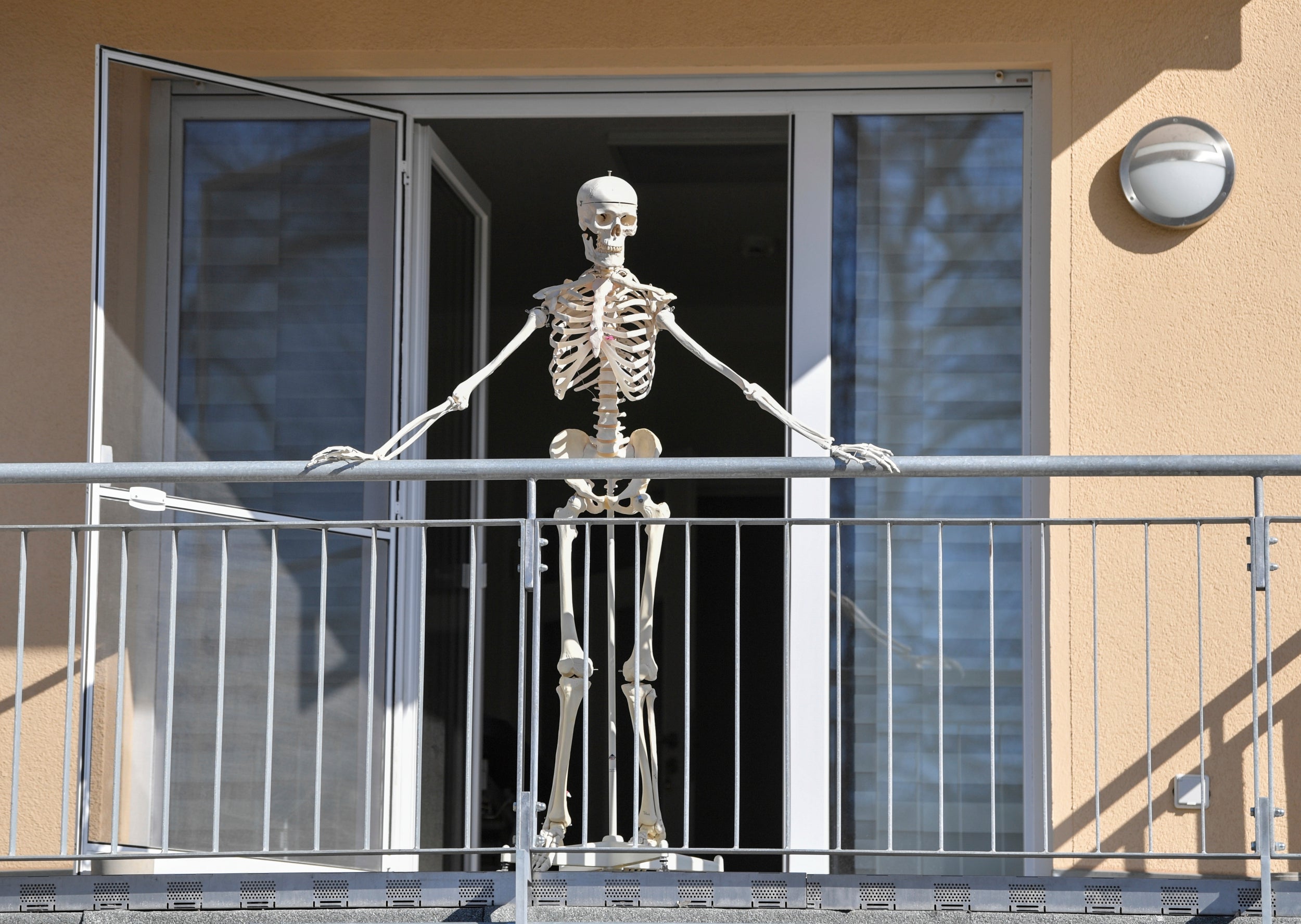
3/15
A skeleton stands on a balcony in Frankfurt, Germany
AP

4/15
The film Le ragazze di Piazza di Spagna is projected on a building in Rome
AP
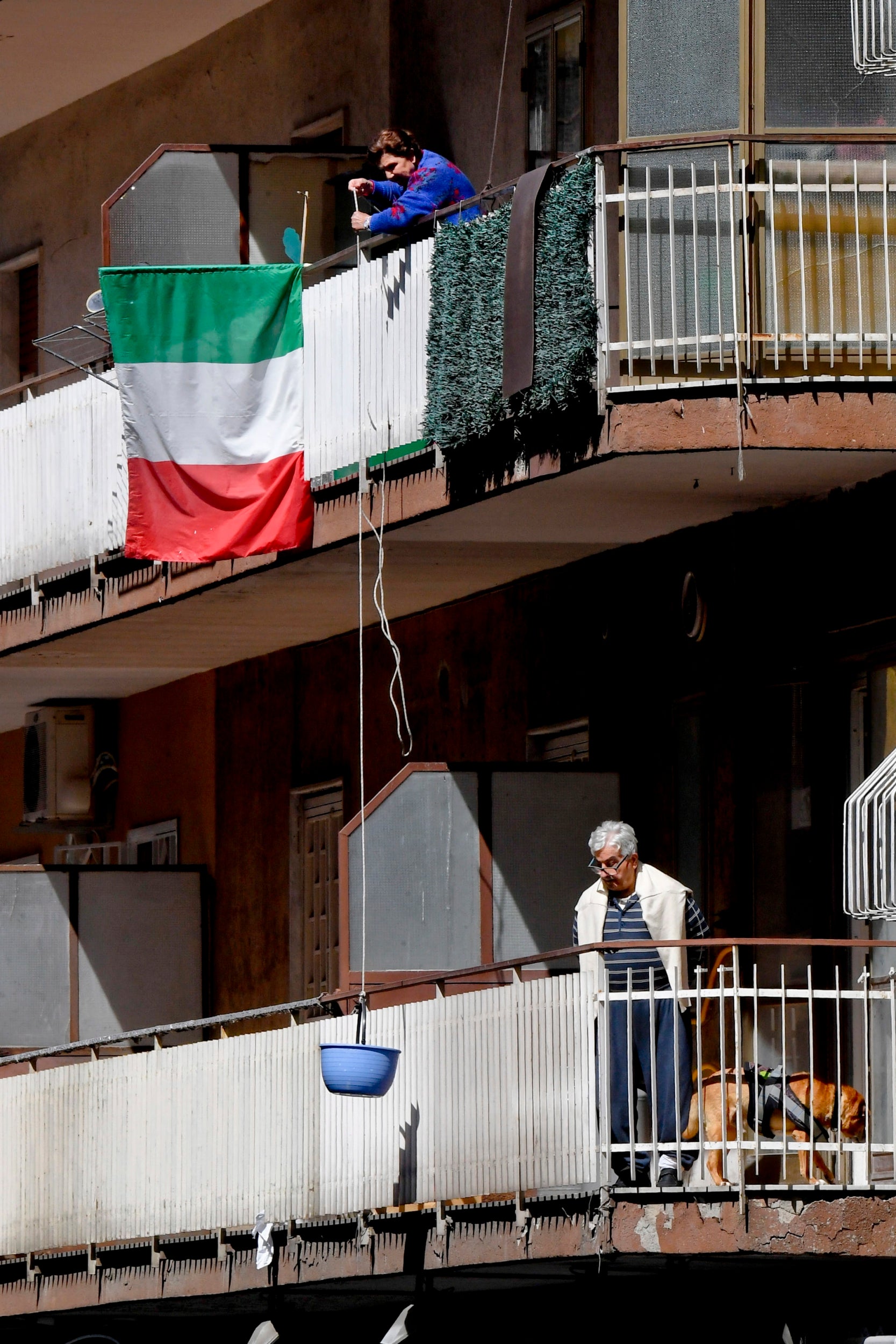
5/15
A woman uses a basket tied to a rope to pull a delivery of groceries up to her balcony in Naples, Italy
EPA
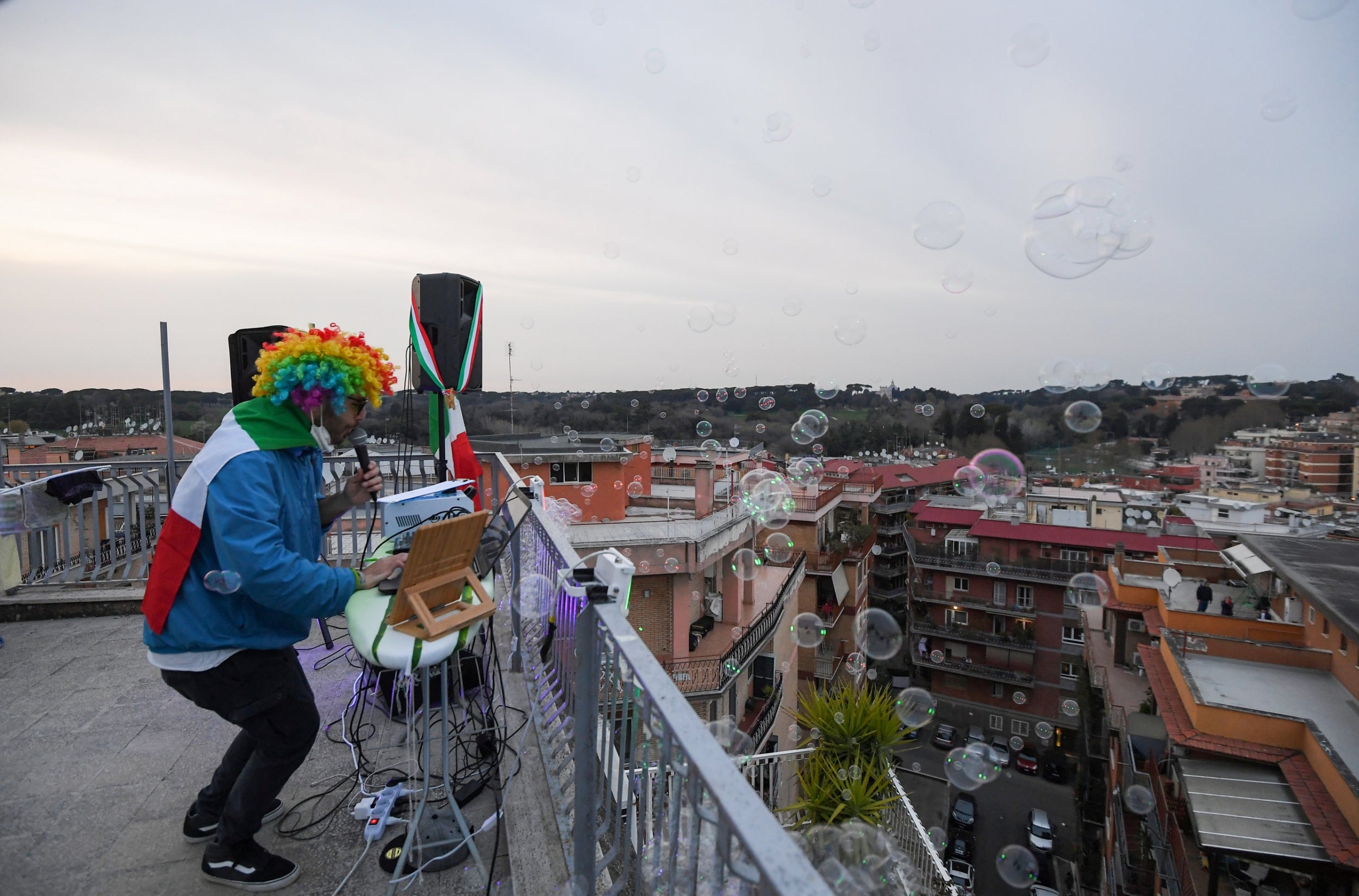
6/15
DJ Francesco Cellini plays for his neighbours from the rooftop terrace of his flat block in Rome
Reuters
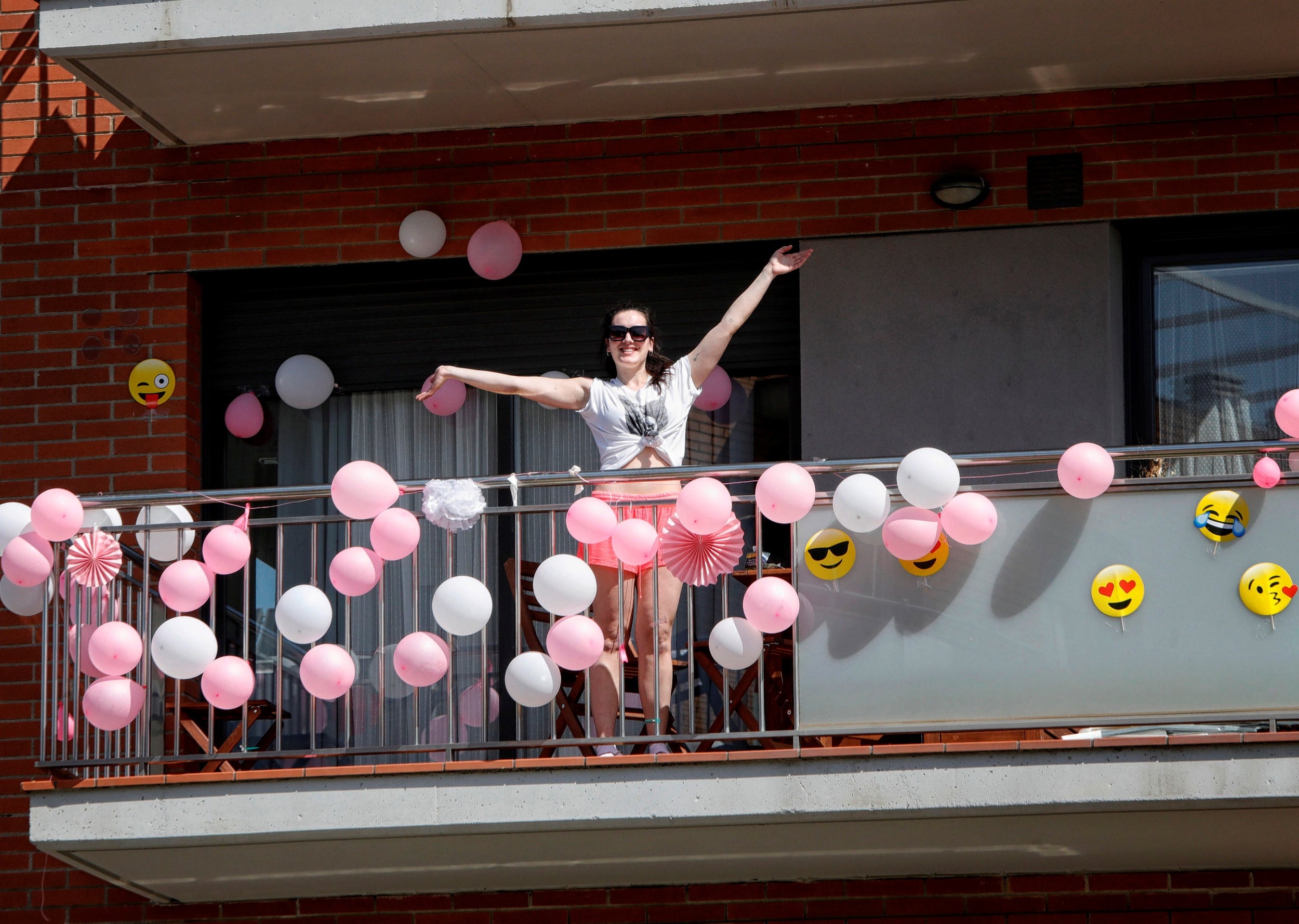
7/15
A woman gestures from her balcony in Barcelona
EPA
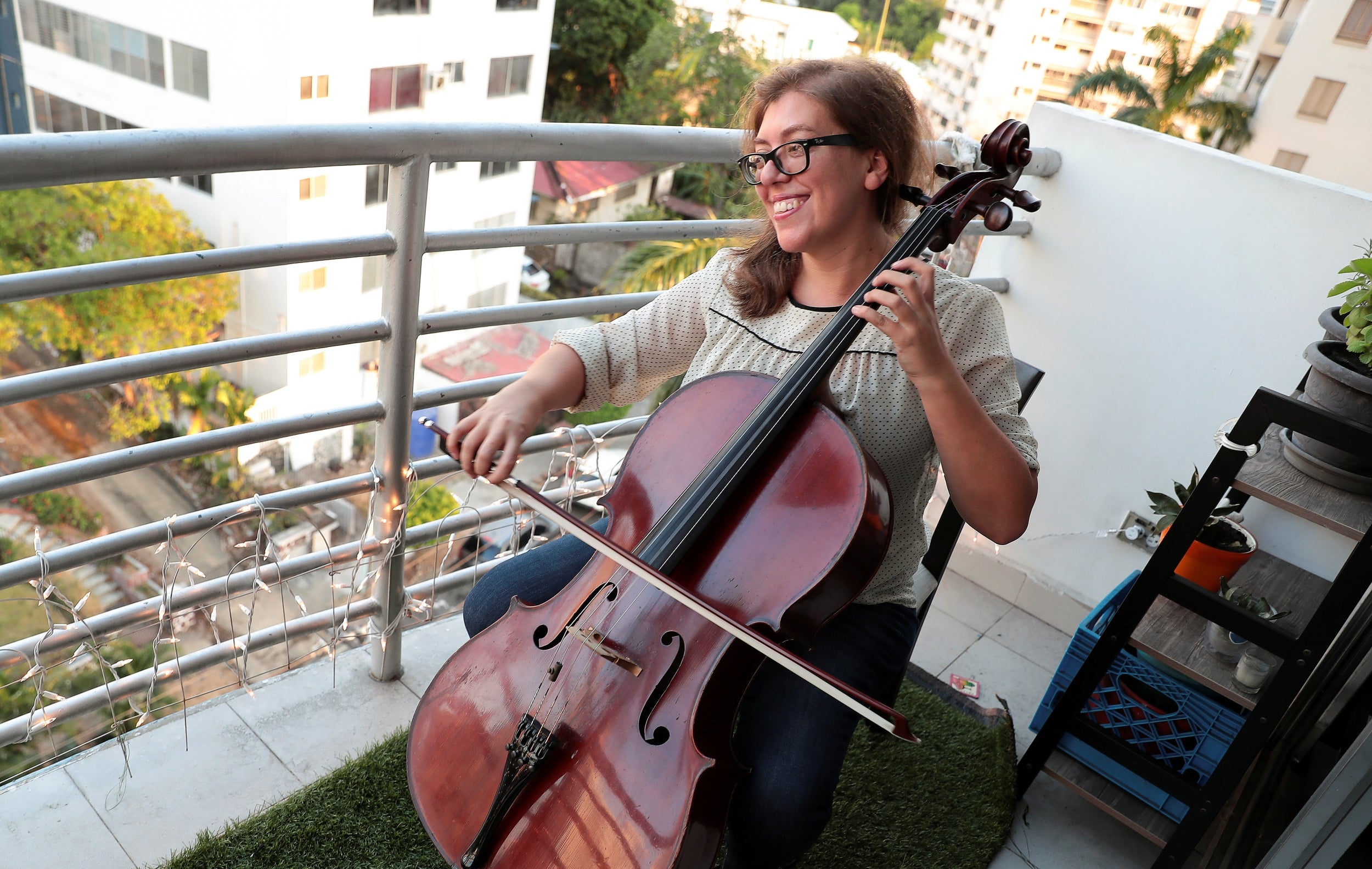
8/15
Cellist Karina Nunez performs for her neighbours at the balcony of her flat in Panama City
Reuters
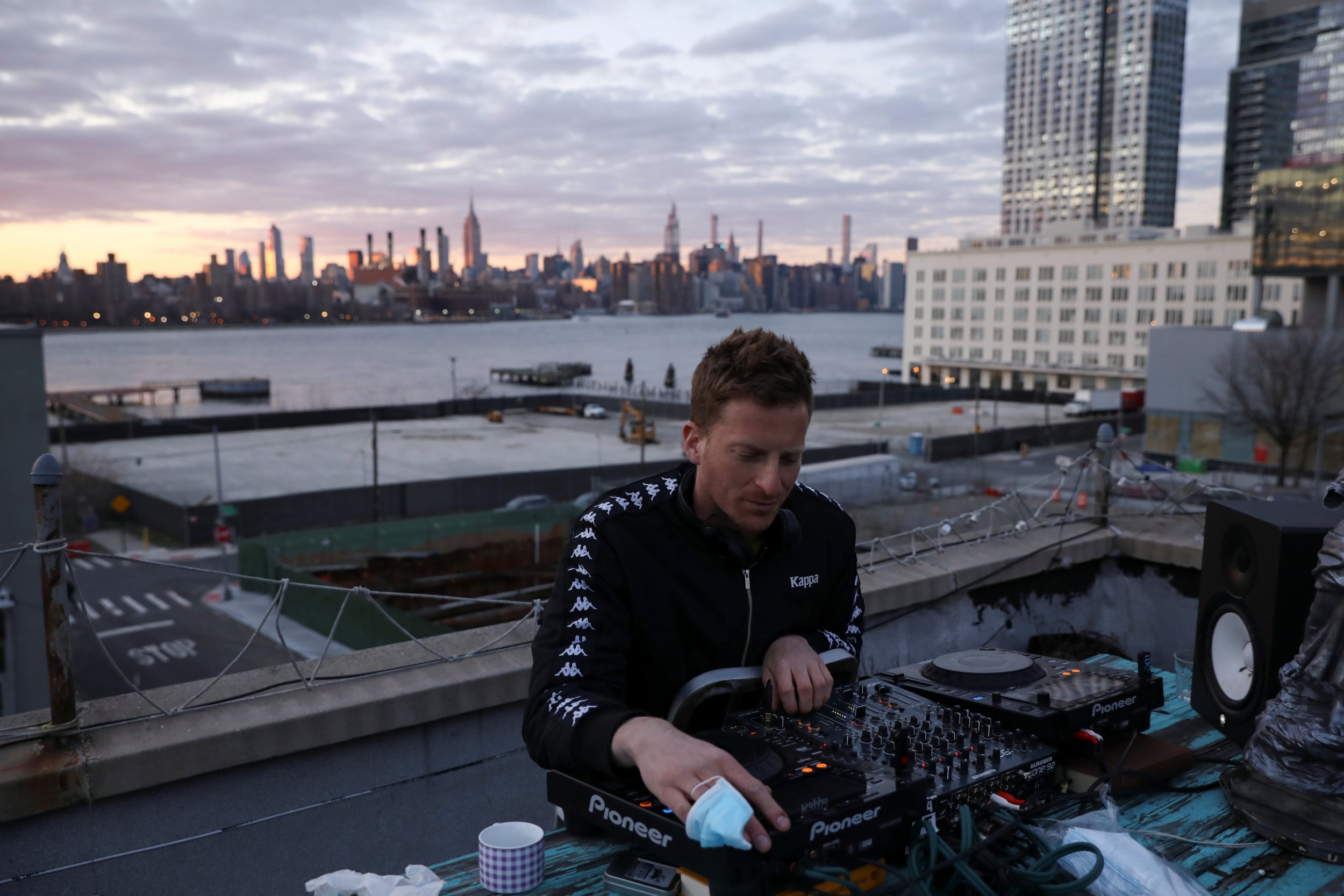
9/15
DJ Nash Petrovic live streams a set from his roof in Brooklyn
Reuters
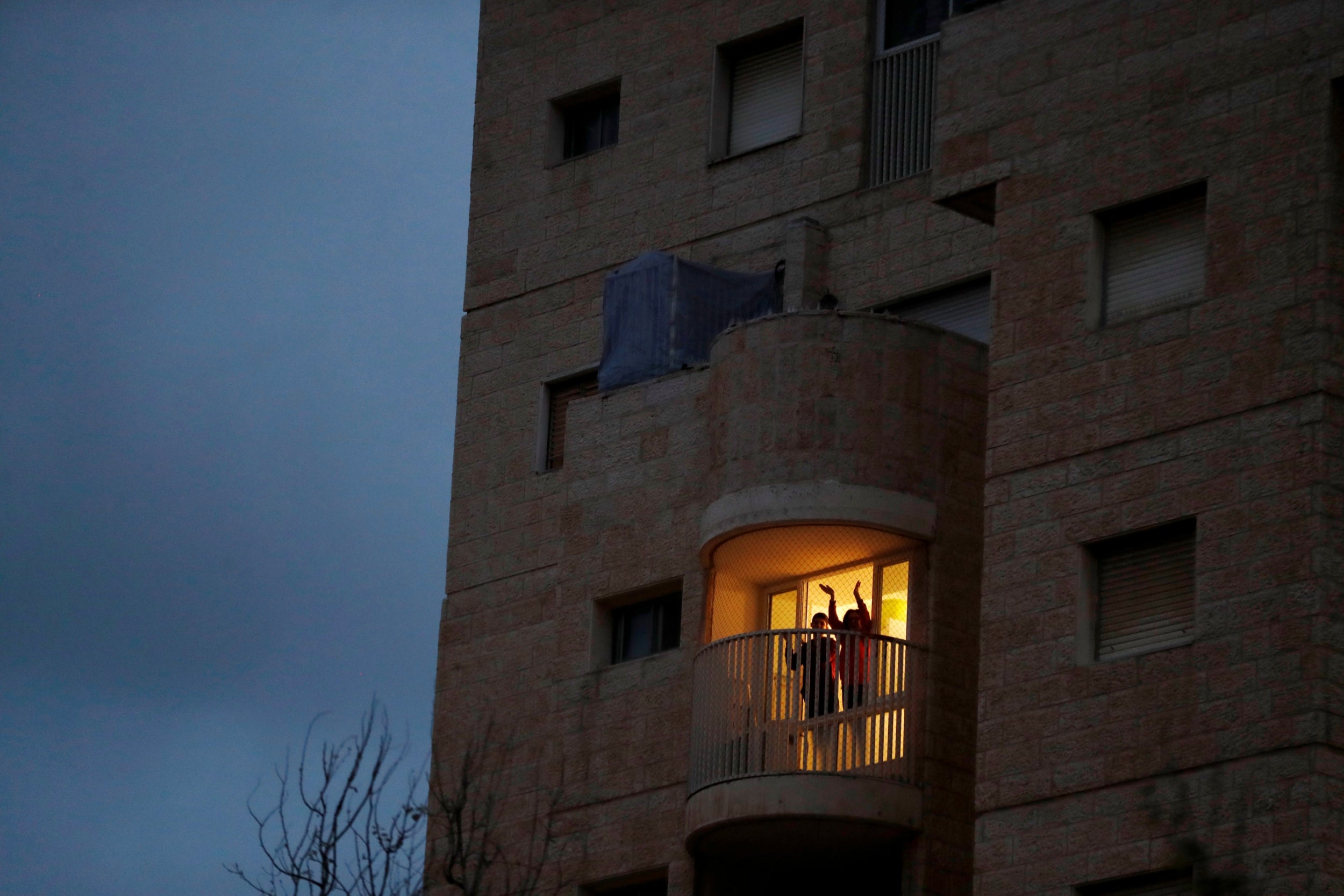
10/15
People applaud medical workers from their balconies in Modiin, Israel
Reuters
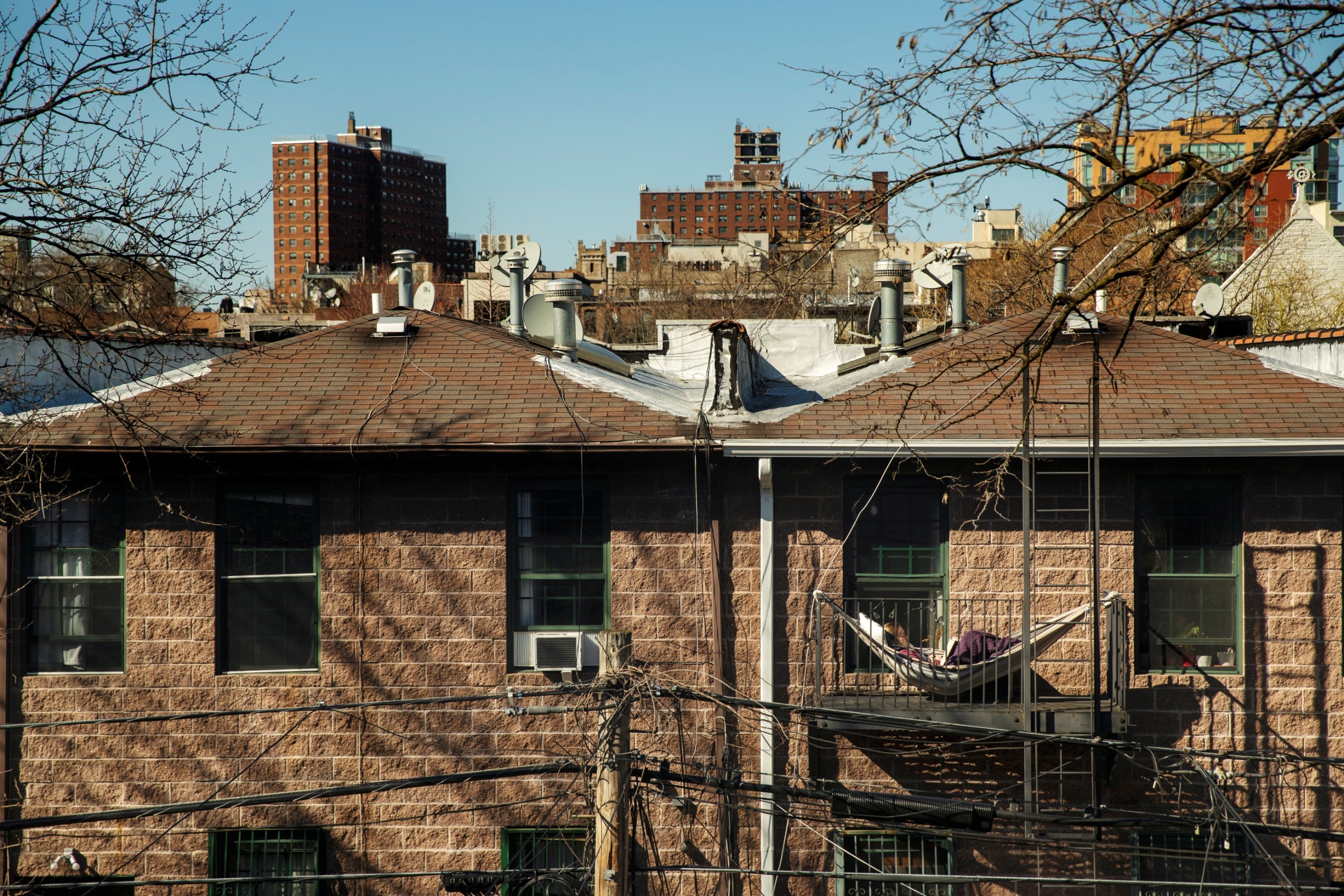
11/15
A Brooklyn resident relaxes in a hammock hung on their balcony
Reuters
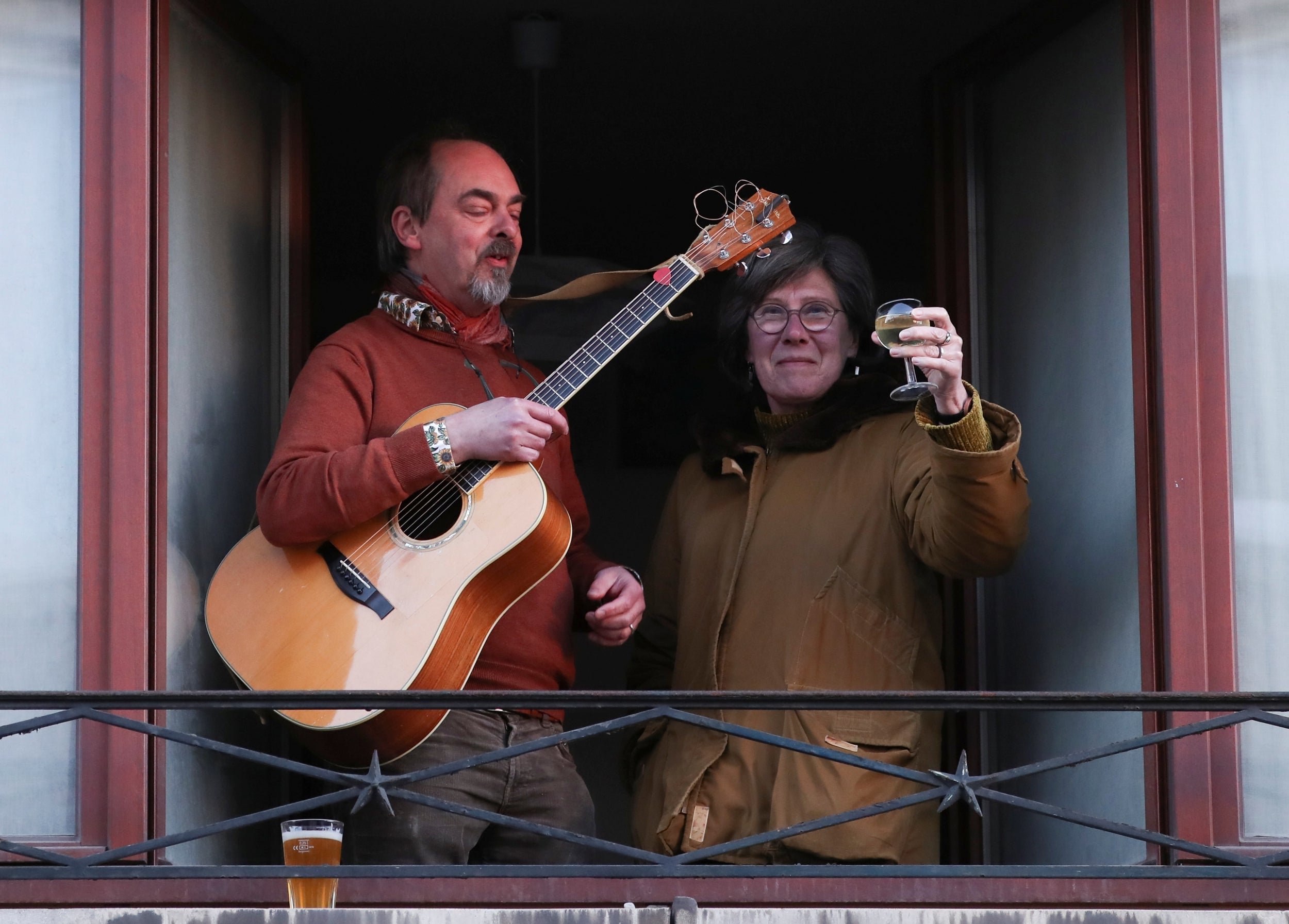
12/15
Residents toast during a “safe distance” aperitif time between neighbours in Anderlecht, Belgium
Reuters

13/15
Musician Adam Moser plays for neighbours from his balcony in Budapest, Hungary
Reuters
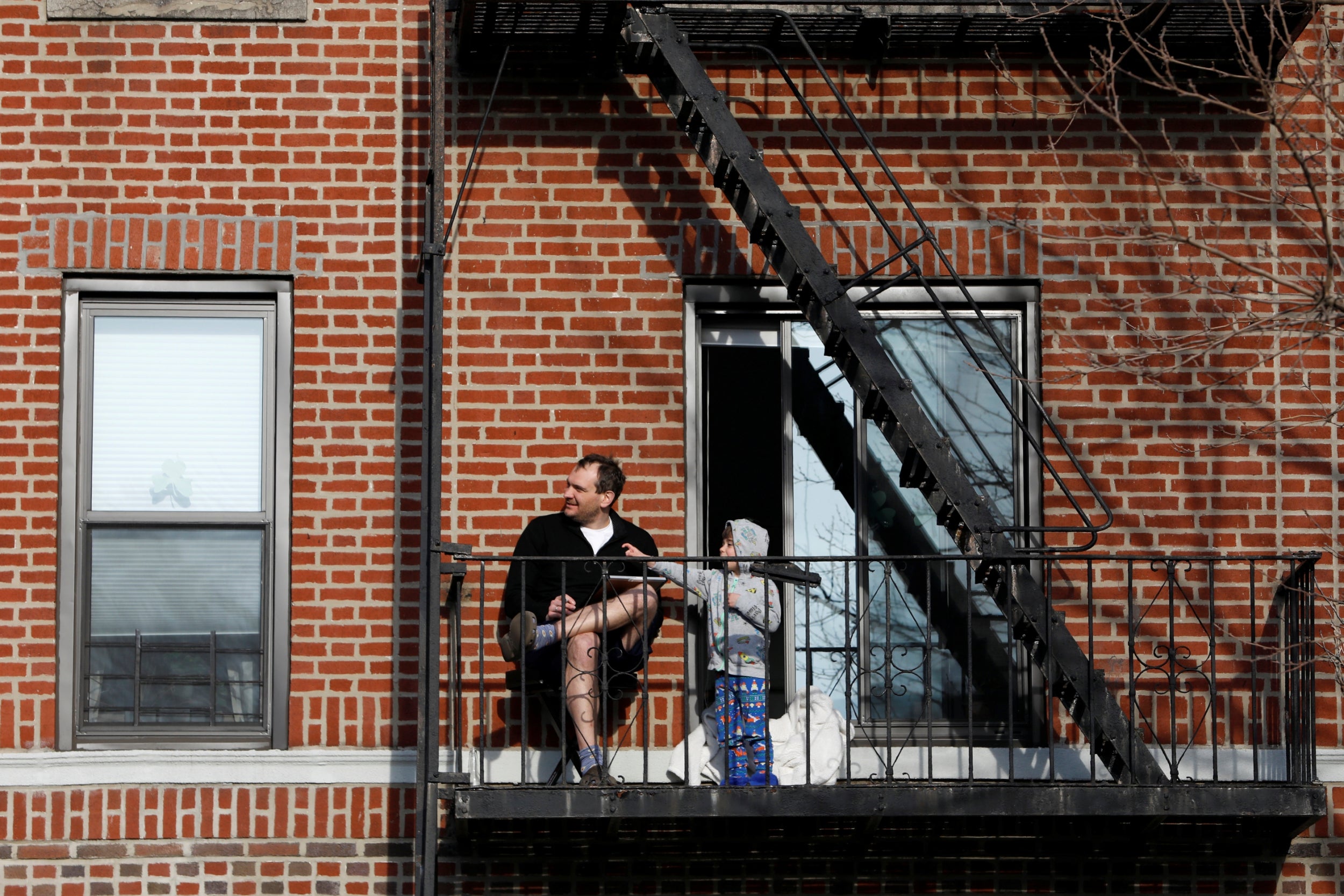
14/15
A man and his son on their balcony in Brooklyn
Reuters

15/15
A man sits alone on a roof terrace in Rome
Reuters

1/15
A rose is delivered by drone to a woman on Mother’s Day in Jounieh, Lebanon
AFP/Getty

2/15
Women dance on their balcony as a radio station plays music for a flash mob to raise spirits in Rome
Reuters

3/15
A skeleton stands on a balcony in Frankfurt, Germany
AP

4/15
The film Le ragazze di Piazza di Spagna is projected on a building in Rome
AP

5/15
A woman uses a basket tied to a rope to pull a delivery of groceries up to her balcony in Naples, Italy
EPA

6/15
DJ Francesco Cellini plays for his neighbours from the rooftop terrace of his flat block in Rome
Reuters

7/15
A woman gestures from her balcony in Barcelona
EPA

8/15
Cellist Karina Nunez performs for her neighbours at the balcony of her flat in Panama City
Reuters

9/15
DJ Nash Petrovic live streams a set from his roof in Brooklyn
Reuters

10/15
People applaud medical workers from their balconies in Modiin, Israel
Reuters

11/15
A Brooklyn resident relaxes in a hammock hung on their balcony
Reuters

12/15
Residents toast during a “safe distance” aperitif time between neighbours in Anderlecht, Belgium
Reuters

13/15
Musician Adam Moser plays for neighbours from his balcony in Budapest, Hungary
Reuters

14/15
A man and his son on their balcony in Brooklyn
Reuters

15/15
A man sits alone on a roof terrace in Rome
Reuters
The nation’s sacrifice would be “wasted” if the lockdown was lifted too quickly, she said, adding: “We need to keep that lid on and then gradually we will be able to hopefully adjust some of the social distancing measures and gradually get us all back to normal.”
Helen Whately, a junior health minister, said it was a “marathon not a sprint” but a review would take place in two or three weeks time of the effectiveness of the stricter measures currently in place.
Ms Whately said ministers were “ramping up” capacity to test NHS staff for the coronavirus but admitted that only 7,000 a day were carried over the weekend – despite the ability to do 10,000 tests daily.
“Within the next three weeks we expect to get to 25,000 tests a day,” she said.
“The really important thing about that – the effort to test NHS and social care staff – is that we can prioritise the testing to parts of the health and care system where we have particular staff shortages so that we can help by testing people so that we can identify if they are negative so they would no longer need to isolate and they can go back to work.”
Ms Whately refused to say when the antibody tests would be available but said work was ongoing to get the tests ready.
“I am not going to confirm when that is going to arrive. Work has been going on to bring that forwards because that will be really helpful to our battle against coronavirus,” she said.
The minister acknowledged there had been delays in getting critical protective equipment to NHS staff but said that more than 170m items of personal protective equipment had been delivered to health and social care organisations.
Meanwhile, Boris Johnson announced that 20,000 NHS staff have returned to the frontline to tackle the pandemic in a video message from his flat above No 11 where he is self isolating.
He chose to contradict Margaret Thatcher’s famous claim that “there is no such thing as society”, saying: “We are going to do it, we are going to do it together.
“One thing I think the coronavirus crisis has already proved is that there really is such a thing as society.”



